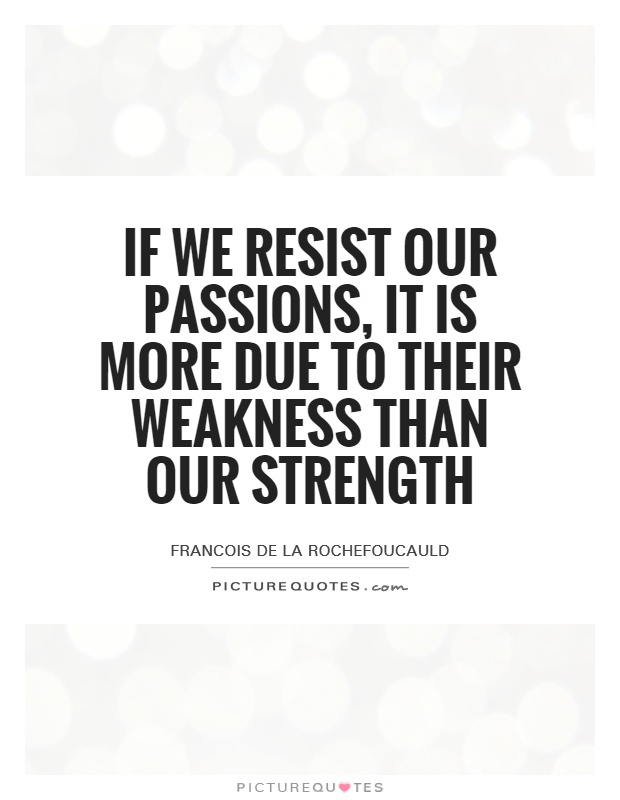
If we resist our passions, it is more due to their weakness than our strength

If we resist our passions, it is more due to their weakness than our strength
Francois de La Rochefoucauld, a French author and moralist, is known for his insightful reflections on human nature and behavior. One of his most famous quotes is, “If we resist our passions, it is more due to their weakness than our strength.” This statement speaks to the idea that our ability to resist our desires and impulses is not necessarily a sign of our own strength, but rather a reflection of the weakness of those passions themselves.La Rochefoucauld believed that human beings are driven by their passions and desires, which can often lead to irrational behavior and poor decision-making. However, he also recognized that these passions are not always as strong or as powerful as they may seem. In fact, he argued that our ability to resist these passions is often more a result of their own inherent weakness rather than our own strength of will.
This idea challenges the traditional view that self-control and discipline are signs of personal strength and moral virtue. Instead, La Rochefoucauld suggests that our ability to resist temptation is often a result of the fact that our desires are not as strong or as compelling as we may believe them to be. In other words, it is not always our own willpower that allows us to resist our passions, but rather the fact that those passions are not as powerful as we think.
This concept has important implications for how we understand human behavior and morality. It suggests that our actions are not always a reflection of our own character or strength, but rather a result of the complex interplay of our desires, impulses, and external circumstances. By recognizing the weakness of our passions, we can better understand the motivations behind our actions and make more informed choices about how we live our lives.
Overall, La Rochefoucauld’s quote challenges us to reconsider our assumptions about self-control and moral virtue. It reminds us that our ability to resist our passions is not always a sign of our own strength, but rather a reflection of the inherent weakness of those passions themselves. By understanding this dynamic, we can gain a deeper insight into the complexities of human nature and behavior.












 Friendship Quotes
Friendship Quotes Love Quotes
Love Quotes Life Quotes
Life Quotes Funny Quotes
Funny Quotes Motivational Quotes
Motivational Quotes Inspirational Quotes
Inspirational Quotes